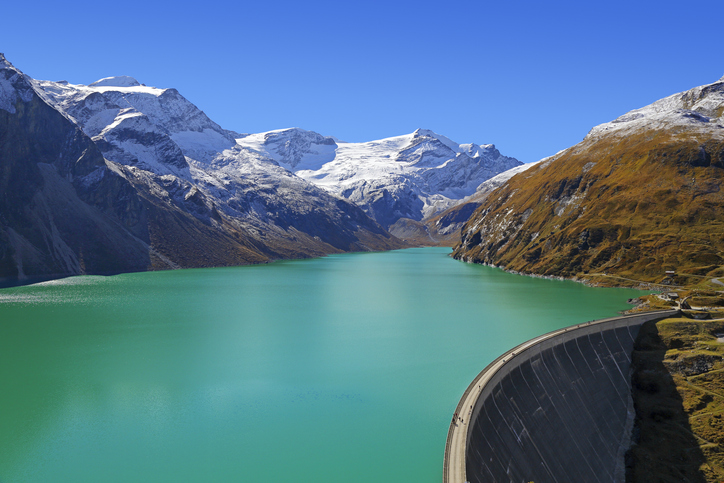Europe’s ability to stay competitive in the global economy may hinge on an increasingly fragile resource – water. Without urgent action to secure supply and improve efficiency, industries could face disruption, Danish water-tech company Grundfos has warned.
Ahead of the Danish Presidency’s possible Council Conclusions on the Water Resilience Strategy, industrial water users across Europe are experiencing mounting challenges in managing water resources. Practical solutions that could enable more sustainable and efficient use are available, but only if Europe seizes the moment to act.
Treat water as a competitiveness issue
Industry accounts for nearly 20 per cent of global water withdrawals, and in high-income countries that share rises to almost 40 per cent. In Europe, the next wave of strategic sectors, from hydrogen and batteries to data centres, is among the most water-intensive.
That makes resilience a strategic issue. “If we run out of fresh water, the party is over for all of our industries,” a Grundfos spokesperson said. “In particular, the ones which are being prioritised as Europe’s future frontiers.”
Water has long been treated as an abundant utility, yet the numbers tell another story. According to Global Water Intelligence, 69 per cent of climate change’s impacts are expressed through the water cycle.
Only 0.5 per cent of the planet’s water is usable freshwater, and terrestrial water storage is dropping at a rate of one centimetre per year, according to the World Meteorological Organization.
UNESCO projects a 50 per cent increase in global water demand by 2030, while the IPCC estimates half the world’s population already faces severe water scarcity for part of the year. Unless management improves, the World Bank warns, a 40 per cent gap between supply and demand could open by 2030.
Put water higher on the EU political agenda
Water policy has historically lagged climate and energy in the European debate. But with the EU Water Resilience Strategy adopted in June and the Danish EU Presidency making it a priority in Council, the political context is shifting.
Grundfos, a Danish company with 80 years’ experience in water technologies, sees this as a moment to push water higher on Europe’s competitiveness and sustainability agenda.
“Water has very much been behind in the agenda,” Grundfos said. “Climate, and energy have long dominated the EU political agenda… but a green transition requires a blue transition, and so water needs to be put on the forefront of the discussion.”
Deploy existing solutions at scale
Technology is not the bottleneck. Pumping systems, advanced filtration and high-recovery reverse osmosis are already available. Desalination and reuse technologies are advancing. The challenge lies in uptake.
“We have solutions today that aren’t being deployed at the scale they could be,” Grundfos said. Barriers include high upfront investment costs, underpriced water tariffs, complex permitting and the lack of harmonised EU-level standards for industrial water reuse.
Without a predictable regulatory framework, companies struggle to replicate solutions across borders. “One set of rules in Germany might differ from the Netherlands or Poland,” the spokesperson explained. “That precludes companies that actually want to do this from being able to roll out processes at scale.”
Supportive regulatory / financial framework
For industry, water resilience is more than an environmental imperative; it is a competitiveness and security issue. Closed-loop water systems can cut costs for energy, chemicals and resources. But without incentives or political support, executives are often reluctant to prioritise the investment.
“There is also a security standpoint here,” Grundfos said. “You don’t want to rely on technologies you need to import. Europe has the most patents for innovative water technologies. But we saw what happened with solar; leadership can be lost quickly.”
Maintaining Europe’s edge in water solutions could have global export potential, given that regions from southern Europe to Asia and the Middle East are grappling with more acute scarcity.
Move from strategy to implementation
The Commission’s Water Resilience Strategy has set the tone, but implementation will require “much firmer commitments,” both regulatory and financial. “The answer has to be multi-faceted, finance is necessary, but it’s not sufficient; a strong legal framework is also needed,” Grundfos said. “By equal measure, a framework without financial backing doesn’t solve anything either.”
Grundfos argues that Europe must urgently bridge the gap between political ambition and operational reality, deploying existing technologies at scale, aligning standards and creating incentives for investment.
Act now to secure Europe’s future competitiveness
As Europe looks to reconcile competitiveness with sustainability, water may prove to be the test case. The stakes are high: resilience of strategic industries, security of supply, and Europe’s position as a global leader in water technology.
“We should not wait to act,” Grundfos warned. “The gap is growing. If we keep business as usual, we will feel water shortages more and more. There is a big opportunity for Europe, if we seize it.”
(BM)
